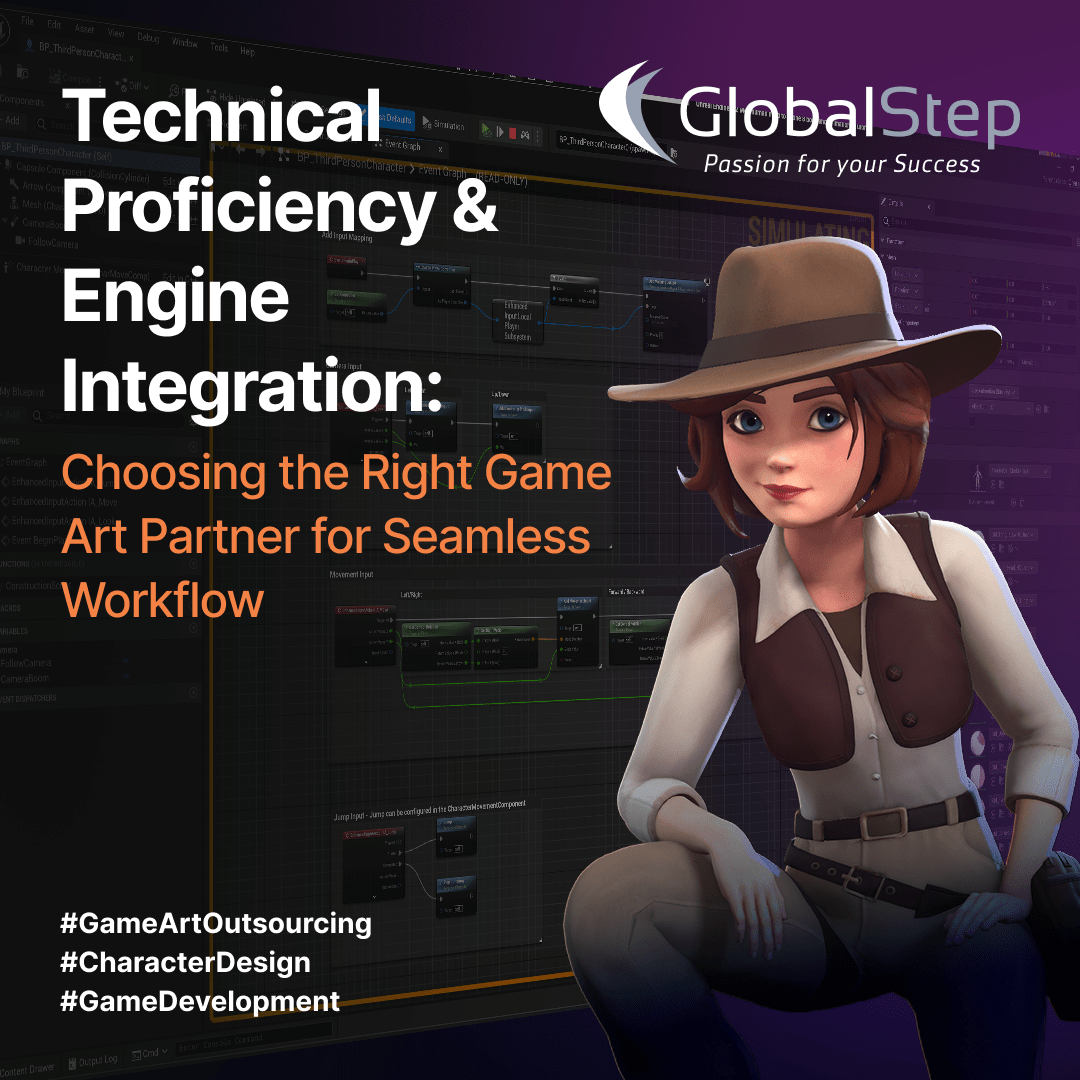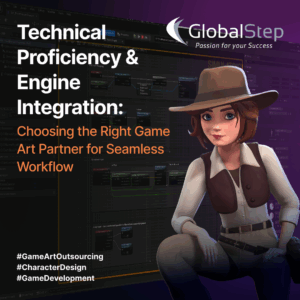Unveiling the New Era of Game Quality Assurance

In a realm where gaming worlds are becoming as complex and intricate as the real world, Quality Assurance (QA) in game development is not merely evolving – it’s transforming in revolutionary ways. This transformation, however, brings forth unique challenges often eclipsed by the more visible aspects of game design and game development.
This blog aims to delve into these challenges, unmasking the pivotal role of QA in shaping the future of gaming. We’re not just talking about testing games; we’re addressing the transformation of QA into a sophisticated, strategic, and indispensable component of the gaming industry.
Our focus will extend beyond traditional bug hunting. We will explore how QA is becoming integral in delivering immersive, bug-free gaming experiences that meet the high expectations of today’s gamers. This piece is tailored for game developers, QA professionals, and industry enthusiasts, offering them a glimpse into the future of game QA and its burgeoning opportunities. By understanding these emerging challenges and the solutions that can effectively address them, our audience will gain valuable insights into leveraging QA not just as a necessity, but as a strategic asset in game development.
The Growing Complexity of Game QA Challenges
The landscape of game QA is facing an intricate web of challenges, unprecedented in both scale and complexity. The first hurdle is the ever-increasing sophistication of games themselves. Gone are the days of linear, predictable gameplay. Modern games are complex systems, boasting expansive worlds and intricate mechanics. This complexity has rendered traditional QA methods somewhat obsolete, struggling to keep up with the diverse content and scenarios needing scrutiny.
Compounding this issue is the escalating expectation of players for seamless, immersive experiences. Today’s gamers are not just customers; they’re avid connoisseurs of virtual worlds, expecting nothing short of perfection. Any glitch or bug can break the immersion, prompting swift and often vocal dissatisfaction. This heightened expectation demands a QA process that is as dynamic and detailed as the games it tests.
Additionally, the integration of new technologies like VR and AR into the gaming world introduces another layer of complexity. QA teams must now understand and test within these new dimensions, ensuring that the virtual and augmented realities are as flawlessly executed as traditional gaming experiences. This not only requires technical expertise but also an understanding of how these technologies impact player interaction and experience.
Furthermore, the shift towards continuous development models, like Agile and DevOps, in game development demands that QA be more integrated and responsive. The era of QA being the last step in the game development process is over. Modern QA must be an ongoing, integral part of development, evolving simultaneously with the game to identify and address issues in real-time.
Lastly, the globalization of the gaming market introduces the challenge of ensuring games resonate and function across diverse cultures and regions. QA must now consider not just technical aspects but also cultural nuances, ensuring that games are universally accessible and engaging.
In summary, game QA is grappling with challenges stemming from the increasing complexity of games, heightened player expectations, the integration of new technologies, the need for continuous testing in modern development models, and the globalization of the gaming market. These challenges necessitate a revolutionary approach to QA, one that is as dynamic, detailed, and globally aware as the games it seeks to perfect.
Navigating the Labyrinth: Market-Wide Solutions for Game QA Challenges

Addressing the multifaceted challenges in game QA requires a multi-pronged approach, one that transcends traditional testing methods. The industry-wide solution starts with the integration of advanced technologies in the QA process. Automated testing tools, employing artificial intelligence (AI) and machine learning (ML), are becoming indispensable. These tools can swiftly identify patterns, predict potential problem areas, and perform repetitive tasks with greater accuracy and efficiency than human testers alone. They are particularly effective in handling the voluminous and repetitive tasks required in testing complex game environments.
Another key solution is the adoption of a more holistic, lifecycle-integrated approach to QA. QA teams must be involved from the earliest stages of game development, ensuring that testing is not an afterthought but a fundamental part of the development process. This approach allows for early detection of issues, reducing the time and cost associated with fixing problems later in the development cycle.
Moreover, embracing a global perspective in QA is crucial. With the gaming industry’s expansive reach, understanding and catering to diverse cultural nuances and preferences is essential. QA teams must include cultural experts and leverage localization testing to ensure games are culturally appropriate and resonate with players across different regions.
Cloud-based testing platforms are also emerging as a solution. They offer the flexibility to test games across various hardware configurations and environments, ensuring compatibility and performance optimization across different platforms. This is particularly crucial in an era where games are released across multiple platforms, from consoles to mobile devices.
Finally, fostering a community of beta testers and early adopters can provide invaluable feedback. Engaging with real players in the testing process helps identify issues that may not be apparent in a controlled testing environment. This community-driven approach also helps in gauging the game’s reception and refining the overall player experience.
The GlobalStep Edge: A Tailored Solution for Tomorrow’s QA Needs

At GlobalStep, our approach to overcoming game QA challenges is not just about adopting industry-standard solutions; it’s about innovating and tailoring them to fit the unique needs of each game and developer. We recognize that every game has its own set of challenges and requirements. Therefore, our solutions are not one-size-fits-all but are customized to maximize efficiency and effectiveness.
Our utilization of AI and ML in QA processes goes beyond standard automation. We harness these technologies to provide predictive analytics, offering insights into potential problem areas before they become issues. This proactive approach to QA helps in maintaining the integrity of the game design while ensuring a bug-free experience for the end-user.
Our integrated QA framework is deeply entrenched in the game development lifecycle. We work in tandem with developers, ensuring that QA is a continuous and integral part of the development process. This partnership allows for real-time feedback and swift resolution of issues, ensuring that the final product is not only technically sound but also aligns with the creative vision of the developers.
Cultural sensitivity and localization are at the heart of our global QA strategy. Our teams are culturally diverse, bringing a wealth of knowledge and insights into different market preferences and sensitivities. We ensure that games are not just technically proficient but are also culturally engaging and relevant to players worldwide.
Leveraging cloud-based testing platforms, we offer a scalable and flexible testing environment that can simulate a wide range of real-world scenarios. This ensures that games are optimized for performance across various platforms and devices, delivering a consistent and high-quality player experience.
Lastly, our community engagement approach in QA brings the voice of the player into the development process. We facilitate beta testing and early access programs, gathering feedback from actual players. This feedback is instrumental in fine-tuning the game, ensuring it not only meets but exceeds player expectations.
In conclusion, at GlobalStep, our solution to the evolving game QA challenges is a blend of advanced technology, integrated processes, global insights, and community engagement. This tailored approach ensures that we are not just testing games; we are perfecting experiences for players around the globe.
Empowering Your QA Journey: Take the Next Step with GlobalStep
As we navigate this transformative era in game QA, the importance of adapting and adopting innovative solutions cannot be overstated. For game developers, publishers, and QA professionals, this is a call to action. It’s time to embrace the new paradigms of game QA, to ensure your games not only meet but exceed the evolving standards of quality and player expectations.
The journey to exceptional game QA is challenging but crucial. This is where GlobalStep comes into play, offering its expertise and innovative solutions. We invite you to partner with us, to leverage our tailored approach in addressing the unique challenges your games face. Our blend of advanced technologies, integrated QA processes, global insights, and community engagement strategies are designed to elevate your game from good to great, from playable to unforgettable.
Don’t let the complexities of modern game development hinder your success. Reach out to GlobalStep today. Let us help you navigate these challenges, ensuring your game is not just another title in the market but a benchmark of quality and engagement. Together, we can redefine the standards of game QA and deliver experiences that resonate with players worldwide.
Charting the Future: Concluding Thoughts on Game QA Evolution
In conclusion, the realm of game QA is undergoing a profound transformation, one that is redefining its role in the gaming industry. As we have explored, the challenges are many – from the complexity of modern games to the global diversity of the player base. However, with challenges come opportunities – opportunities to innovate, to improve, and to excel.
GlobalStep stands at the forefront of this evolution, ready to guide and support you in this journey. Our commitment is to not just meet the industry standards but to set them. By partnering with us, you gain more than a service provider; you gain a collaborator, a strategist, and an innovator in game QA.
We invite you to be part of this exciting journey. Together, let’s shape the future of game QA, creating gaming experiences that are not just played but cherished. The next wave of game QA is here, and the opportunities are unlimited. Let’s seize them together.





